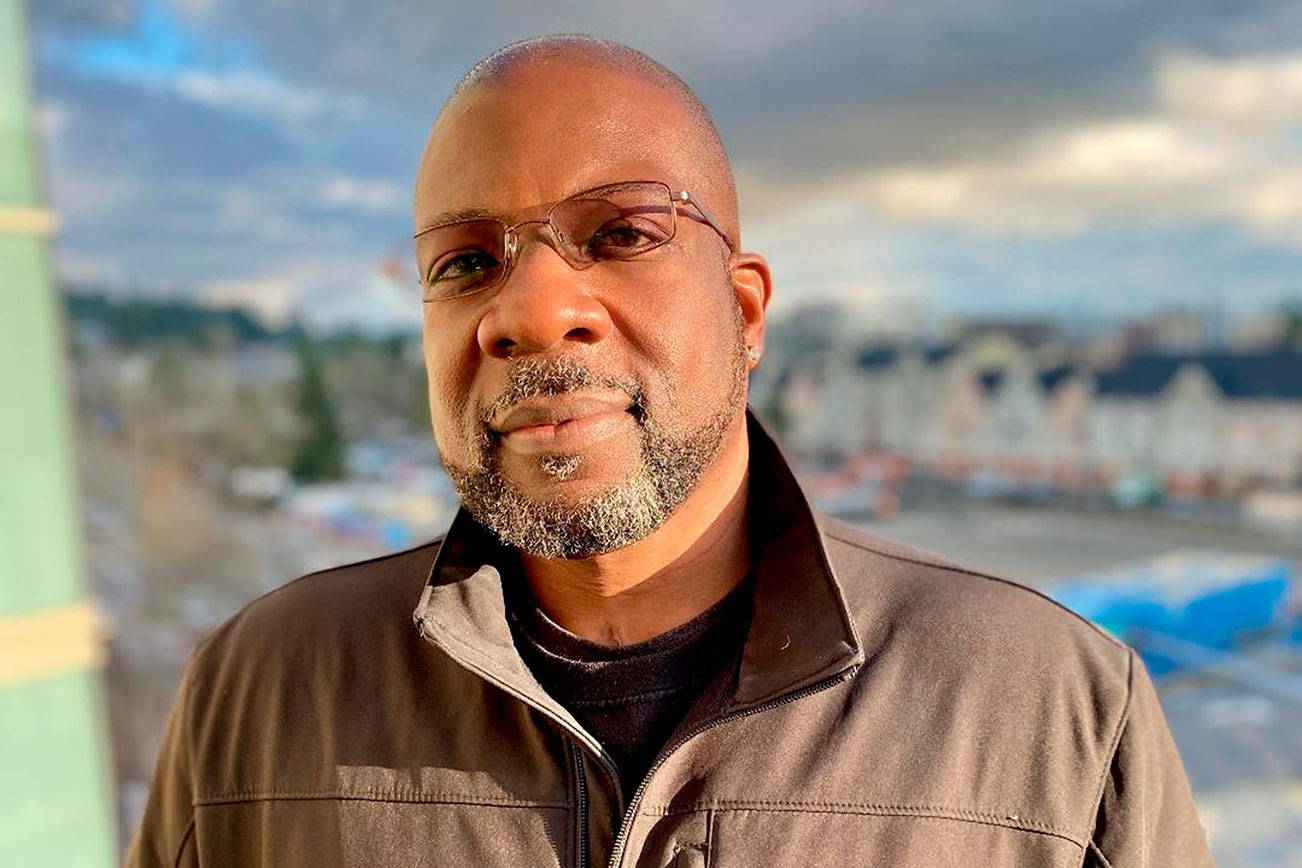Like millions of Americans, Kent Hay rises very morning, dresses, eats his breakfast and hits the road for work.
Most of the time, however, he’s not bound for a cozy office. He’s headed out to the bushes and to Auburn’s city parks.
That’s where the homeless are, but shouldn’t be.
Hay’s job as Auburn’s homeless coordinator is not primarily about moving the homeless out, he says. Indeed, he has no such authority at the moment.
It is about letting the homeless know they cannot camp or set up shelter in public places like parks, because if they do, they can be trespassed.
The more significant part of his job, Hay said, is talking to the homeless about all the services out there to help them with their problems, in Auburn and throughout King County, and to point them to those services, from drug and alcohol addiction treatment to mental health counseling to food and a simple shelter and bed for the night.
“I tell them, ‘we want you in Auburn, we want you to participate, but you can’t just come to Auburn and continue being homeless,’” Hay said.
As the city of Auburn’s homeless coordinator for the last six months, Hay carries with him decades of experience as a probation officer for the county and federal criminal justice systems, and as a case manager in the social service field.
“What I am trying to do here is compassion and accountability and community,” Hay said. “Compassion is part of it, but I think you can be compassionate to a point where you hurt people. Sometimes people get lost in giving so much that they what they are really doing is telling homeless people that this is what their life is going to be, and they are not going to ask anything more of them because they feel like ‘If I am giving, then I am doing something.’”
Hay said his goal is to help homeless people feel comfortable enough to do something different, to improve their living situations.
Now, the city is preparing to add a bit of “stick” to the “carrot” of the job with an ordinance that would make tenting in parks and other public places subject to laws against trespassing as well as subject to an infraction and fine.
Enforcement, Hay said, has always been in the background, but until now the city has been reluctant to go there.
The ruling in Martin vs. the city of Boise, which determined that cities have to find a place for people to go before moving them from public places, is key to the draft ordinance.
“Since we don’t have the camping ordinance yet, I still go out to bushes or somewhere on city property, but I don’t have a stick, I have a carrot. I can offer them all the services in the world, but I don’t have the policing part. There’s nothing I can do get to get folks out.
“I am in all the parks because we do have dusk-to-dawn park rules in them, so right now all I am doing is enforcing park rules. So if somebody is camping in a park, I go out and talk to them, let them know that camping is not allowed out here, and if they are here when the park closes and I find them there when I come back in the morning, I let them know they could be trespassed from the park.
“I feel like here in Auburn, there’s nothing I can’t do. I can partner with the Department of Social and Health Services, I can partner with King County, I am able to do a DSHS assessment. I have a computer, I have a police radio, and a WiFi hot spot, so I can do all this stuff in the bushes. I go to where the people are at. I don’t mind meeting them there, but at the same time I don’t give out blankets and tents and food. I lead people to come to the table to participate because we have so many resources available to help people get out of the situation, but what we will not involve ourselves in is contributing to their demise.”
Most of the time he said, people agree to check out the services or they leave the park.
To date, Hay said, he has had to trespass two people, and he has found housing for two more. But his and the city’s goal remains for parks to be places for everyone to enjoy.
Hay explained how he came to do what he’s doing now.
Ultimately, he said, as a probation officer he got tired of sending people to court and then to jail and seeing the cycle repeat itself time and again, he said. He said he didn’t didn’t feel like the system itself was helping people to stay out of it.
“I thought I could do more, I wanted to help people,” Hay said.
So he got into social services, first as a mental health counselor at Valley Cities and most recently as the city of Redmond’s first Outreach Coordinator.
Jumping between the criminal justice system and social services, he said, has been helpful for a person who works every day with people beset by problems. The experience, he says, has made him into a person who knows every nook and cranny of the system without having to learn how to navigate it.
Something he says, like a human “one-stop shop.”
”Everyone is important,” Hay said of his outreach to the homeless. “I don’t want want this to be an us-versus-them thing. I am not offering instant gratification. I am saying to them, ‘It’s time for you to be a human being again. You are a human being, you deserve better than going to the bathroom in the bushes, or taking a bath in the river or living in filth.’ People forget that.”



